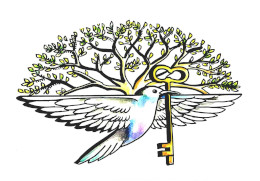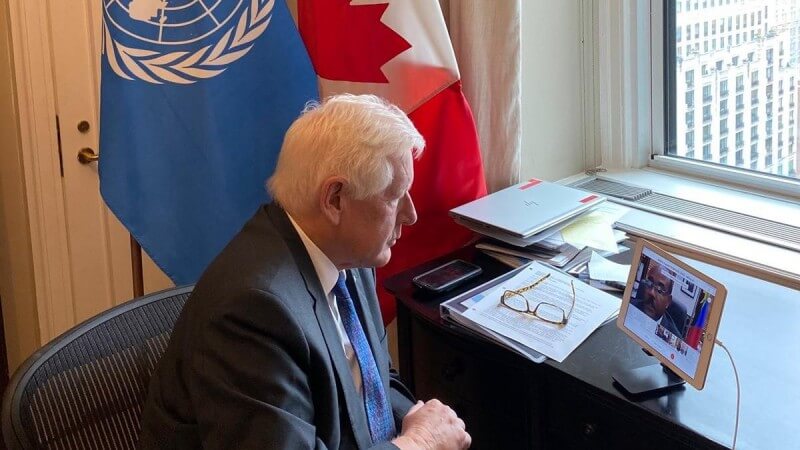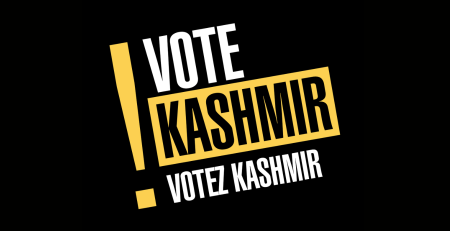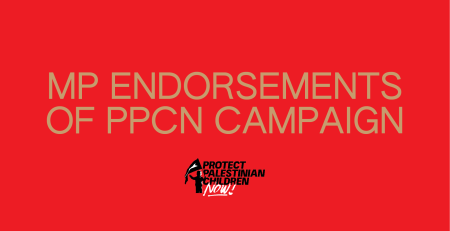An earlier analysis of Canada’s voting since 2000 at the United Nations by Just Peace Advocates indicated that Canada has voted YES 87 times since the turn of the 21st century, but 85 of those were from 2000 to 2010.
During this time, Canada voted NO 166 times and ABSTAINED 49 times.
The YES vote in 2011 was actually in regard to a “Report of the Secretary-General on the strengthening of the management capacity of the United Nations Relief and Works Agency for Palestine Refugees (UNRWA) in the Near East”. In other words, this entails essentially calling for a review of UNRWA. As a result, for a decade, Canada had no votes in support of human rights or international law related to the rights of the people of Palestine.
In November 2019, Canada did vote YES to the self-determination vote. A vote that was understood by many as an orphan vote serving as a fig leaf of hope to the international community to entice votes in favour of Canada’s upcoming bid for a seat in 2020 on the United Nations Security Council (UNSC) bid.
There was indication by some that this was a signal “Canada was back.” Canada had last voted YES to self-determination in 2005. Canada had voted YES to self-determination from 2001, when the current self-determination resolution was first introduced, until 2005. After 2005, until 2019, Canada voted AGAINST Palestinian self-determination.
Now in November 2020, Canada has again voted YES to the Right of Palestinian People to Self-Determination A/C.3/75/L.45. This has caused some hope that Canada is indeed taking a principled stand, and has led to upset by the pro-Israel lobby.
It would seem that the timing of the appointment by Prime Minister Trudeau of a Special Envoy on Preserving Holocaust Remembrance and Combatting Antisemitism less than a week after the vote, might be a peace offering to the pro-Israel lobby.
Certainly, it would not have looked good to vote against self-determination and expose that Canada had indeed cast its YAY vote in 2019 in an effort to get support for its UNSC bid.
For those who remember the Chrétien Liberal decade from 1993 to 2003, they remember that Canada either voted YES or abstained but did not vote NO during that time. From that perspective, it has been said that there was a shift even to some degree during the following short term with Liberal Prime Minister Martin. This was followed by the Harper pro-Israel period, which included from 2011 onwards voting NO to almost all UN resolutions on the Question of Palestine, with a couple abstentions, and no YES votes. The Trudeau liberals have continued in this vein, not deviating from the Harper Conservative approach except the self-determination vote in 2019 and now in 2020.
Canada’s voting history at the United Nations since 1947
An overall analysis since 1947, has now been completed of Canada’s United Nations voting record, by Just Peace Advocates, and it is a reminder of the longer picture. A picture that speaks to Canada’s at best conditional support regarding Palestine.
This pulling together of data from the United Nations database is revealing of a strong and consistent pro-Israel vote by Canada over the last seventy years.
While the shift to voting NO consistently began in 2011 onwards, Canada cast its first NO vote on the Question of Palestine in 1949, and moved following 1967 towards many NO votes.
In the 1970s and 1980s, often a YES vote is misleading as these resolutions were not specifically focused on the rights of the Palestinian people, but rather were related to increasing peacekeeping or other issues that served the occupier at least as much as the occupied.
Analysis of votes in the period after the 1993 Oslo Accord, shows the international community was voting YES more consistently on UN resolutions related to Palestine, and that Canada joined in that regard in casting YES votes within the context of Oslo language, voting in support of motions that condemned aspects of the occupation. In which prior to 1993, Canada had either voted no or abstained.
The following provides a summary of Canada’s vote during the 20th and 21st century at the United Nations on the Question of Palestine.
The following provides a summary of Canada’s vote during the 20th and 21st century at the United Nations on the Question of Palestine.
Canada’s votes at the UN
| Yes | No | Abstain | |
| Sums – 2000 to 2019 | 87 | 166 | 49 |
| Sums- 1947 to 1999 | 434 | 129 | 225 |
| Total Sum – 1947 to 2019 | 521 | 295 | 274 |
However, to understand the details it takes more analysis than simply looking at summary numbers, or even at year by year voting trends. Initial analysis has provided some interesting history, in regard to Canada’s stance on Palestine through all 73 years.
Below, see a breakdown by year of voting. Albeit, to understand this requires a deeper dive in looking at the actual content of the resolutions, as well as what the rest of the international community was saying.
Media coverage
Canadian Dimenson, November 29, 2020, Don’t be fooled by Canada’s recent pro-Palestine UN vote
Crescent International, November 30, 2020, Canada’s less than sterling record in support of Palestine rights at the UN
20th Century
| Year: | Yes | No | Abstain |
| 1999 | 16 | 0 | 5 |
| 1998 | 19 | 0 | 5 |
| 1997 | 22 | 0 | 5 |
| 1996 | 17 | 0 | 6 |
| 1995 | 14 | 1 | 7 |
| 1994 | 14 | 1 | 6 |
| 1993 | 12 | 3 | 8 |
| 1992 | 17 | 2 | 9 |
| 1991 | 17 | 3 | 11 |
| 1990 | 11 | 4 | 6 |
| 1989 | 17 | 4 | 9 |
| 1988 | 21 | 6 | 13 |
| 1987 | 18 | 8 | 11 |
| 1986 | 15 | 6 | 10 |
| 1985 | 17 | 9 | 9 |
| 1984 | 17 | 7 | 8 |
| 1983 | 16 | 8 | 10 |
| 1982 | 20 | 10 | 17 |
| 1981 | 17 | 8 | 14 |
| 1980 | 9 | 8 | 7 |
| 1979 | 15 | 7 | 4 |
| 1978 | 14 | 9 | 4 |
| 1977 | 6 | 4 | 5 |
| 1976 | 4 | 3 | 4 |
| 1975 | 2 | 3 | 5 |
| 1974 | 1 | 2 | 6 |
| 1973 | 2 | 0 | 8 |
| 1972 | 4 | 2 | 3 |
| 1971 | 1 | 3 | 2 |
| 1970 | 4 | 2 | 1 |
| 1969 | 2 | 1 | 1 |
| 1968 | 0 | 0 | 1 |
| 1967 | 6 | 3 | 0 |
| 1966 | 3 | 0 | 0 |
| 1965 | 2 | 0 | 0 |
| 1964 | 0 | 0 | 0 |
| 1963 | 5 | 0 | 0 |
| 1962 | 2 | 0 | 0 |
| 1961 | 2 | 0 | 1 |
| 1960 | 1 | 0 | 0 |
| 1959 | 3 | 0 | 0 |
| 1958 | 2 | 0 | 0 |
| 1957 | 3 | 0 | 1 |
| 1956 | 7 | 0 | 2 |
| 1955 | 0 | 0 | 0 |
| 1954 | 0 | 0 | 0 |
| 1953 | 0 | 0 | 0 |
| 1952 | 4 | 0 | 0 |
| 1951 | 0 | 0 | 0 |
| 1950 | 4 | 1 | 0 |
| 1949 | 2 | 1 | 1 |
| 1948 | 2 | 0 | 0 |
| 1947 | 5 | 0 | 0 |
| Sums – 1947 to 1999 | 434 | 129 | 225 |
21st Century
Yes No Abstain
| 2019 | 1 | 10 | 1 |
| 2018 | 0 | 14 | 4 |
| 2017 | 0 | 14 | 2 |
| 2016 | 0 | 14 | 1 |
| 2015 | 0 | 15 | 1 |
| 2014 | 0 | 15 | 2 |
| 2013 | 0 | 15 | 2 |
| 2012 | 0 | 16 | 2 |
| 2011 | 1 | 15 | 2 |
| 2010 | 6 | 8 | 4 |
| 2009 | 6 | 8 | 5 |
| 2008 | 7 | 7 | 3 |
| 2007 | 7 | 7 | 3 |
| 2006 | 8 | 5 | 6 |
| 2005 | 11 | 3 | 2 |
| 2004 | 11 | 1 | 2 |
| 2003 | 12 | 0 | 3 |
| 2002 | 10 | 0 | 2 |
| 2001 | 9 | 0 | 3 |
| 2000 | 9 | 0 | 1 |
| Sums – 2000 to 2019 | 87 | 166 | 49 |
Photo credit: Bob Rae, Canada’s Ambassador and Permanent Representative to the United Nations, delivers some closing remarks at the High-Level Event on Financing for Development. Photo from Twitter.






